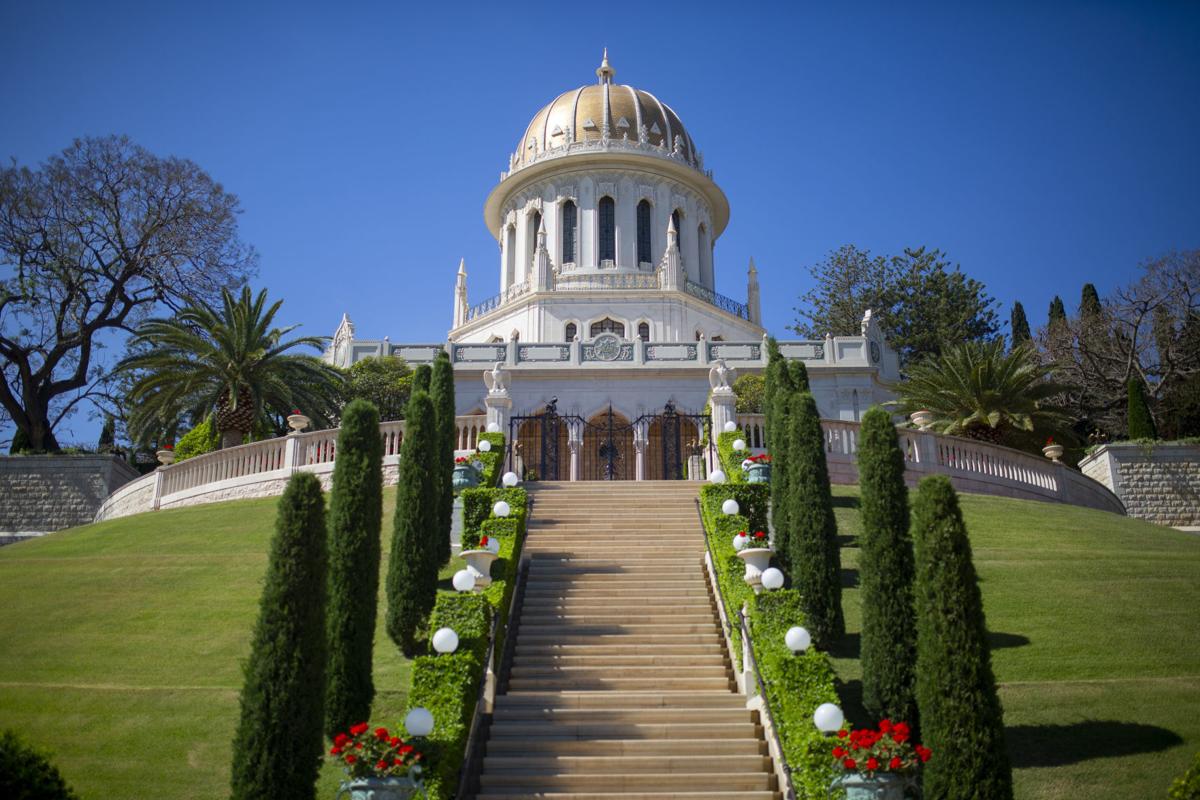
In previous dispensations, because of lack of educational means and resources, believers had to depend on priests and pastors for spiritual enlightenment, but such a dependency is no longer needed. To harmonize the world with the spirit of the age, Bahá’u’lláh takes the responsibility away from priests and pastors and places it on every believer. To serve humankind for the love of God is a privilege that is extended equally to all people.
The administrative affairs of the Bahá’í Faith are delegated to elected bodies at various levels—local, national, and international. Local Spiritual Assemblies work under their National Spiritual Assembly, and National Spiritual Assemblies function under the guidance of the Universal House of Justice, the supreme governing body of the Bahá’í Faith.
Today is the day of union and this age is the age of harmony… “Verily, God loveth those who are working in His path in groups, for they are a solid foundation.”220 _ ‘Abdu’l-Bahá
Shortly after Shoghi Effendi’s passing, the responsibility of leadership in the Bahá’í Faith devolved upon a universal assemblage, that supreme elected institution called by Bahá’u’lláh The Universal House of Justice. Its members represent and receive the full support of the entire Bahá’í community, encompassing over two hundred countries and territories throughout the globe.
Bahá’u’lláh describes the functions of the Universal House of Justice in these terms:
The men of God’s House of Justice have been charged with the affairs of the people. They, in truth, are the Trustees of God among His servants and the daysprings of authority in His countries.
O people of God! That which traineth the world is Justice, for it is upheld by two pillars, reward and punishment. These two pillars are the sources of life to the world. Inasmuch as for each day there is a new problem and for every problem an expedient solution, such affairs should be referred to the House of Justice that the members thereof may act according to the needs and requirements of the time. They that, for the sake of God, arise to serve His Cause, are the recipients of divine inspiration from the unseen Kingdom. It is incumbent upon all to be obedient unto them. All matters of State should be referred to the House of Justice, but acts of worship must be observed according to that which God hath revealed in His Book.221
Bahá’u’lláh promises to inspire and guide the Universal House of Justice:
It is incumbent upon the Trustees of the House of Justice to take counsel together regarding those things which have not outwardly been revealed in the Book, and to enforce that which is agreeable to them. God will verily inspire them with whatsoever He willeth, and He, verily, is the Provider, the Omniscient.222
The leadership and guidance of the Universal House of Justice will continue through the remaining years of the Bahá’í dispensation, prophesied by Bahá’u’lláh to last no less than a thousand years.
The Bahá’í administration provides many avenues for those willing to serve. Every Bahá’í, however meager his talents, can find many opportunities to use his energies for the betterment of his community and in service to humankind.
Perhaps the most vital and distinctive feature of Bahá’u’lláh’s administrative order is consultation carried out in a spirit of justice, compassion, and understanding. Bahá’u’lláh regards consultation as a key to solving not only social, but also individual problems.
Consultation must take place in the light of the knowledge of God; the divine teachings must always serve as guiding principles to the unfolding of truth, to the making of decisions.
Take ye counsel together in all matters, inasmuch as consultation is the lamp of guidance which leadeth the way, and is the bestower of understanding.223 _Bahá’u’lláh
It is incumbent upon everyone to observe God’s holy commandments, inasmuch as they are the wellspring of life unto the world. The heaven of divine wisdom is illumined with the two luminaries of consultation and compassion and the canopy of world order is upraised upon the two pillars of reward and punishment.224 _Bahá’u’lláh
Elections for the spiritual assemblies always take place with reverence; no canvassing, propaganda, competition, or nomination is allowed. Though unfamiliar to many, such a system not only bears better fruits, it also preserves the dignity so often lacking in current competitive democratic systems.
Democracy is the ideal form of governance, but not in its present form. Democracy is presently based on a “win-lose” principle, in which “one party gets what he wants whereas the other comes up short.” Most games offer the most clear-cut examples of a win-lose principle. Power is the distinctive feature of this system of problem solving. The Bahá’í system is based on a “win-win” principle. It regards the best interests of all individuals involved, including those who may be remotely affected. Therefore everyone is a winner. Truth and justice determine the outcome rather than lawyers, strategies, or loopholes in the law.
Finally, in the Bahá’í Faith, monetary contributions are made privately and voluntarily, and only by Bahá’ís. No contributions are accepted from other people for the promotion or maintenance of the Bahá’í Faith.
The following article, written by John Huddleston, formerly Chief of the Budget and Planning Division of the International Monetary Fund, summarizes some of the main features of the Bahá’í Administration.



